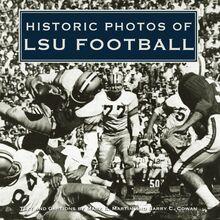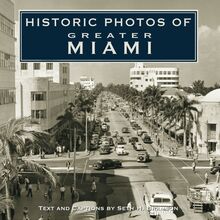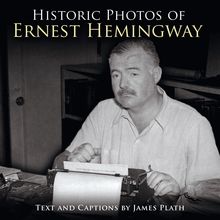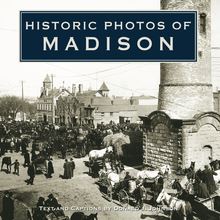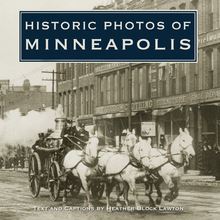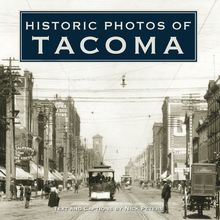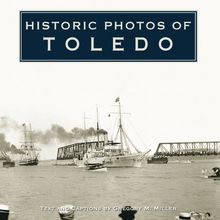Historic Photos of Mobile , livre ebook
202
pages
English
Ebooks
2008
Vous pourrez modifier la taille du texte de cet ouvrage
Obtenez un accès à la bibliothèque pour le consulter en ligne En savoir plus
Découvre YouScribe en t'inscrivant gratuitement
Découvre YouScribe en t'inscrivant gratuitement
202
pages
English
Ebooks
2008
Vous pourrez modifier la taille du texte de cet ouvrage
Obtenez un accès à la bibliothèque pour le consulter en ligne En savoir plus
Publié par
Date de parution
01 avril 2008
Nombre de lectures
4
EAN13
9781618586568
Langue
English
Poids de l'ouvrage
5 Mo
Mobile's long history includes joyous Mardi Gras celebrations and tragic natural disasters. Civil War and segregation, shipping and manufacturing, dirt streets and booming wharves are part of its fascinating story. Cargo shipped to and from its busy docks gradually shifted from cotton to timber to bananas to manufactured goods. In World War II, its population grew exponentially as the city became an important shipbuilder for America's arsenal.
Historic Photos of Mobile transports readers to a time of hoop skirts and horse-drawn carriages, then shows them how the city changed during the first half of the twentieth century. Timeless, rarely seen, black-and-white images capture historic colleges, family-owned shops, the longest American flag ever displayed, hurricane damage, social change, tall ships, and scenes of daily life in generations long gone.
Publié par
Date de parution
01 avril 2008
Nombre de lectures
4
EAN13
9781618586568
Langue
English
Poids de l'ouvrage
5 Mo
HISTORIC PHOTOS OF
MOBILE
T EXT AND C APTIONS BY C AROL E LLIS AND S COTTY E. K IRKLAND
A panoramic view of Mobile taken from the roof of the Cawthon Hotel around 1909. Among other things, the Van Antwerp Building and the tops of trees in Bienville Square are visible.
HISTORIC PHOTOS OF
MOBILE
Turner Publishing Company
200 4th Avenue North Suite 950
Nashville, Tennessee 37219
(615) 255-2665
www.turnerpublishing.com
Historic Photos of Mobile
Copyright 2008 Turner Publishing Company
All rights reserved.
This book or any part thereof may not be reproduced or transmitted in any form or by any means, electronic or mechanical, including photocopying, recording, or by any information storage and retrieval system, without permission in writing from the publisher.
Library of Congress Control Number: 2007942094
ISBN-13: 978-1-59652-434-7
Printed in China
09 10 11 12 13 14 15-0 9 8 7 6 5 4 3 2
C ONTENTS
A CKNOWLEDGMENTS
P REFACE
N EW S OUTH C ITY (1870-1899)
T URN-OF-THE -C ENTURY M OBILE (1900-1919)
T HE R OARING T WENTIES (1920-1929)
N EW D EAL M OBILE (1930-1939)
W ORLD W AR II AND B EYOND (1940-1949)
F ROM O PPORTUNITY TO S TAGNATION (1950-1979)
N OTES ON THE P HOTOGRAPHS
Mobilians came to the Empire Theater on Dauphin Street in 1920 to see Norma Talmadge s She Loves and Lies , a comedy about a heiress with multiple personalities. Patrons paid 25 cents for adult tickets. This photograph was taken some years before the Hays Code censored movies like Sex , starring Louise Glaum, advertised to the left.
A CKNOWLEDGMENTS
This volume, Historic Photos of Mobile , is the result of the cooperation and efforts of many individuals, organizations, and corporations. It is with great thanks that we acknowledge the valuable contribution of the following for their generous support:
Clarke County Historical Society
Harris Photo Company
Library of Congress
Mobile Public Library
Museum of Mobile
University of South Alabama Archives
The authors would also like to thank the following individuals for valuable contributions and assistance in making this work possible:
Michael Thomason and Lisa Baldwin, their predecessors at the archives, and Barbara Asmus
P REFACE
A photograph is a powerful medium. It evokes memories, emotions, and questions. There are thousands of photographs of Mobile residing in archives, both locally and nationally. The goal in publishing this work is to disseminate more widely the extraordinary photographic history of the city of Mobile. We seek to preserve the past with respect and reverence, and hope the images in this book offer an original, untainted perspective that will allow the reader to interpret and observe them.
This project represents the collaboration between Turner Publishing and the University of South Alabama Archives. The researchers and writers reviewed the thousands of photographs contained in the university s archives, selecting those we thought the reader would most like to see. We supplemented those images with photographs from several other local sources as well as the Library of Congress. We greatly appreciate the generous assistance of the individuals and organizations listed in the acknowledgments section of this work, without whom this project could not have been completed.
With the exception of cropping where necessary and touching up imperfections that have accrued with the passage of time, no other changes have been made to the images. The focus and clarity of many of them are limited by the technology and ability of the photographer at the time they were taken.
The work is divided into eras. Beginning with some of the earliest known photographs of Mobile, the first section records the city through the end of the nineteenth century. The second section spans the beginning of the twentieth century through World War I. The following three sections cover the 1920s, 1930s, and 1940s respectively. The concluding section documents the changes that occurred between 1950 and 1979.
We have made an effort to capture various aspects of life in Mobile through our selection of the images herein. To provide a broad outlook, we have included photographs of people, commerce, transportation, infrastructure, religious institutions, and educational institutions.
We encourage readers to reflect as they go walking in Old Mobile. Stroll through the city, its parks, and its streets. It is the publisher s hope that in utilizing this work, longtime residents will learn something new and that new residents will see where Mobile has been, so that each can contribute to its future.
After the Civil War, timber and naval stores from distributors like the Moses Company became an important part of Mobile s economy.
N EW S OUTH C ITY
(1870-1899)
Mobile experienced unprecedented change in the nineteenth century. After the War of 1812, Mobile became an American city but remained an isolated trading center during the early 1800s. The potential of the Port City, however, was unmistakable, and by the 1820s, many entrepreneurs made their way into Mobile, establishing shipping companies and warehouses along the waterfront.
In the decades that followed, Mobile s economic advances were dependent on cotton exportation. Cotton arrived in the city by wagons and trains from Alabama s fertile Black Belt and other regions in the American interior to be shipped to Europe or New England. Merchants and cotton interests in Mobile profited substantially from these exports. These wealthy businessmen formed the earliest social organizations and quickly came to dominate local politics.
Mobile s fortunes came to an abrupt end during the Civil War as a Federal blockade decimated foreign trade. Conditions in wartime Mobile were very poor, particularly when compared against the heady optimism of just a few years before. The city escaped the wartime destruction experienced by other Southern cities, but in May 1865, a waterfront armory with 200 tons of ordnance and munitions exploded, leveling eight blocks of the city and killing 300 workers. The city faced two seemingly insurmountable problems in 1865: rebuilding a major portion of its port facility, and reestablishing its status as a commercial center for a region in economic ruin.
The early years of the New South were unkind to the Port City. Its population decreased as its cotton-dependent economy languished. Industrial growth in other areas of Alabama and the growing prominence of railroad commerce endangered the Port City s future. In 1879, with the city virtually bankrupt, the Alabama legislature repealed Mobile s charter and established the Port of Mobile. The repeal lasted until 1886, by which time Mobile s fortunes had improved. In the 1880s, timber replaced cotton as Mobile s largest export, and municipal improvements like streetcars and telephone lines provided evidence that the city was recovering. Bananas from Central America became a crucial import and helped to revive the port. Prospects of deepening Mobile s ship channel and securing better rail connections to the north also helped usher in a sense of optimism as Mobilians prepared to enter the twentieth century.
Northeast view of the Cathedral of the Immaculate Conception. The cornerstone of the building was laid in 1835, and it was built between 1834 and 1849 by the architect Claude Beroujon.
A view of an unpaved Government Street in the 1890s, when carriages were still the preferred mode of travel.
Government Street, looking west from Duncan Place, 1895. The courthouse spires can be seen.
Chartered in 1848 to enhance Mobile s appeal as a commercial center, the Mobile Ohio Railroad dominated the waterfront by 1895.
The fourth Mobile County Courthouse (1889-1957), designed by Rudolph Benz. This 1895 image shows how ornate the structure was. Erected at a cost of $50,000, it included pilasters, towers, and statuary, as well as a portico, a gable, and an 86-foot clock tower. The statue of the woman holding the flame can now be seen in the atrium of the Museum of Mobile.
Mobilians watch as the Gayfer s building on Dauphin Street burns in 1899. Fires devastated many antebellum structures in the late nineteenth and early twentieth centuries.
This image depicts some of the forces that drove the area s economy before the twentieth century-cattle, timber, and railroads.
Mobile s Mardi Gras activities date back decades and remain a central part of the city s annual pre-Lenten celebrations. In this photo, taken in 1898, Mardi Gras King Felix II and his court parade down St. Joseph Street.
In the 1890s, when this picture was made on Mobile s waterfront, most of the world s cargo still moved under sail. These ships, the Aucusta and Henry Norwell , are probably carrying timber. The name Aucusta may have been an alternate form of Augusta .
This young man proudly poses with his catch of red snapper (ca. 1895).
Smith s Bread has been available in Mobile stores for more than a century. This Conception Street store proudly announced they offered it for sale (ca. 1895).
Clerks display fresh produce and dry goods outside the R. O. Harris Grocery at the corner of Dauphin and Joachim streets.
Mobile s chapter of the Salvation Army was established in October 1899 under the direction of Captain James T. Cumbie. Here, its band poses for a portrait in the studio of photographer Erik Overbey.
Commercial fishing has always been important to Mobile s economy, as this photograph of a fleet of oyster boats demonstrates (ca. 1895).
Mobile s oyster docks, 1895.
Barton Academy was Alabama s first public school. Built in 1835, it was named for state representative Willoughby Barton, the author of the bill creating Mobile s public school system. The building was used as a hospital for Union soldiers in 1864.
Van Antwerp and Son, located at 2 South Royal Street, sold medicines, soda, mineral water, and seeds.
Dockworkers prepare cotton b





